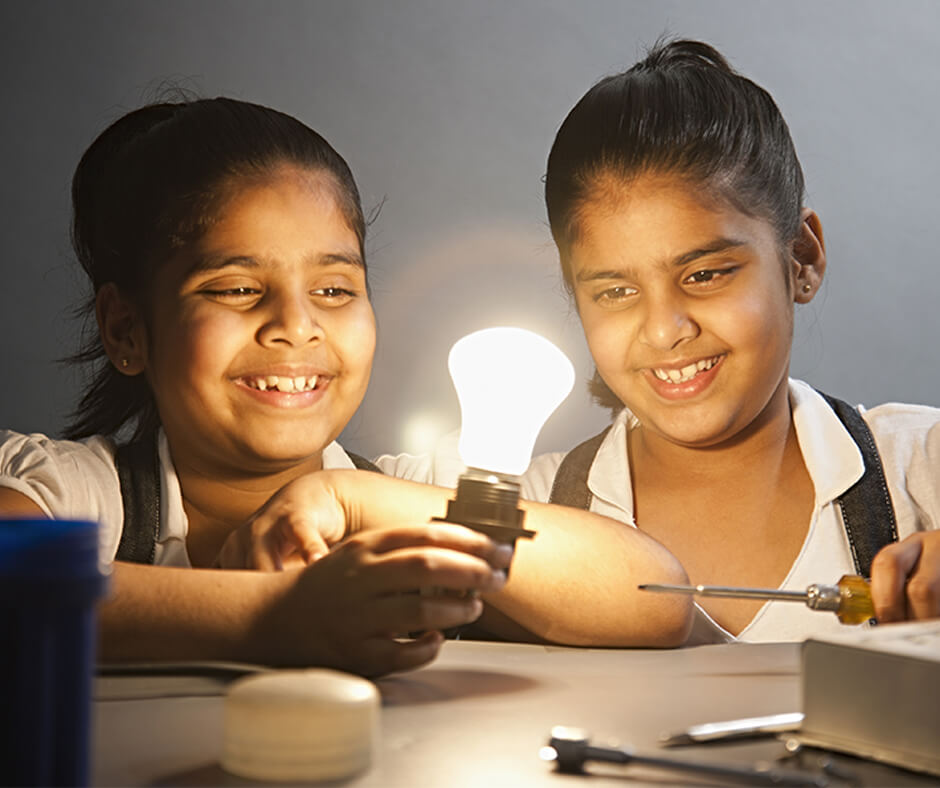Teach your kids to handle challenges

When my neighbour’s daughter Jaya completed her graduation, she got an interview call from a reputed accounting firm. Her father decided to accompany her for two main reasons: so that she doesn’t have to travel alone and to check out people at her probable workplace. Jaya was obviously distraught with her father’s decision.
“There’s no way the firm will hire someone who can’t deal with her own issues”. This point of view finally dissuaded her father from accompanying Jaya to the interview. We need to let kids solve their own problems.
Good educators understand that kids learning how to be problem solvers is crucial to their development. In fact, leadership is so much about problem-solving, and we are always hoping to groom leaders out of confident, amazing kids. Good teaching, therefore, is not about giving out the right answers but about helping kids arrive at the solutions themselves. It’s about teaching kids to use their problem solving skills to overcome challenges and find solutions.
We actually begin teaching our kids “problem solving” from the moment they are infants, their toy falls off a few feet away from them, and we let them go get it on their own. This teaching goes on into their adulthood, probably taking a huge turn around the time they start college and we tell them “You better figure out which colleges you wish to apply to, get the forms, and begin going about it on time.” And that’s exactly how things need to be, so that kids learn to handle all the challenges that come their way.
Let’s enhance their problem-solving skills! Here are ten great ways to bestow your kids with problem-solving skills:
- Define limits: Let your kids know what is or is not acceptable at home. They then would know what kind of solutions to seek, for their problems.
- Ditch being a helicopter parent: Give lots of space to your kids, whatever age they are. And let them make mistakes and learn from them!
- Encourage creativity: That is key to acing problem solving. You could start with building blocks and puzzles, when your kids are young. That way, creativity in problem solving becomes a norm for your kids.
- Help your kids figure out their emotions: It is tough to think clearly, when one is angry or upset. Try needling a thread into a pinhole when you are crying! Therefore, it is important help kids understand their emotions, so that they can learn to respond and not react. They can also learn to keep their emotions aside, when challenges need to be resolved.
- Bring in the roadblocks: Here’s the opposite of solving your kids’ problems! Introduce little challenges in their lives. Water’s run out. Now how will you bathe in only half a bucket of water? We haven’t cooked extra food but your friend is over for dinner? How we all together tackle this? Papa can’t drive, mumma can’t drive and you need to get to a certain place for a school event? Learn to operate a cab service app on the phone? Introduce little roadblocks in their lives, and let them learn to solve them.
- Ask questions and lead towards solutions: Don’t solve their problems for them. But you can ask a multitude of questions that will lead your kids towards the right solutions to their challenges.
- Make problem-solving a fun home culture: We run into problems all the time. Make it a habit to discuss them at home. Could make fun dinner-table talks if you are approaching and solving your problems with a smile and a positive attitude. It will become a norm at home to do that!
- Teach them to break down the problems into bite-sized snacks! That’s how your kids will learn to prioritise and face challenges, one-step-at-a-time. Things would also not be overwhelming for them, once they learn to break down their problems into little chunks.
- Work on some Do-it-yourself projects at home: Put together a piece of furniture at home, fix that plumbing trouble, drive away the bugs, sanitize the house with the whole family, execute a cleanliness drive in your apartment complex. Take on such DIY projects. It will get your kids into the habit of solving problems and having fun in the process.
- Always ask your kids for help when you run into problems: This will ensure that your kids know that you trust their problem-solving skills and their opinions. You can also indulge in brainstorming as a family. Incredible creative ideas would come up, and problem-solving will become a fun family ritual.
- Let them make mistakes and fail: That’s the only way that they will learn. They need to learn to be okay with making mistakes as well. Only remind them to learn from their mistakes every time.
- Do not solve their problems: I cannot reiterate this enough. Let your kids learn. Spoon feeding them with solutions will never help them. Give them a chance to be creative, strong, methodical, and confident.
Equipped with these tips to help your kids become problem solvers, they will easily tackle any challenge that comes their way. You can know more about how to help your kids develop a problem-solving attitude by watching this video.




